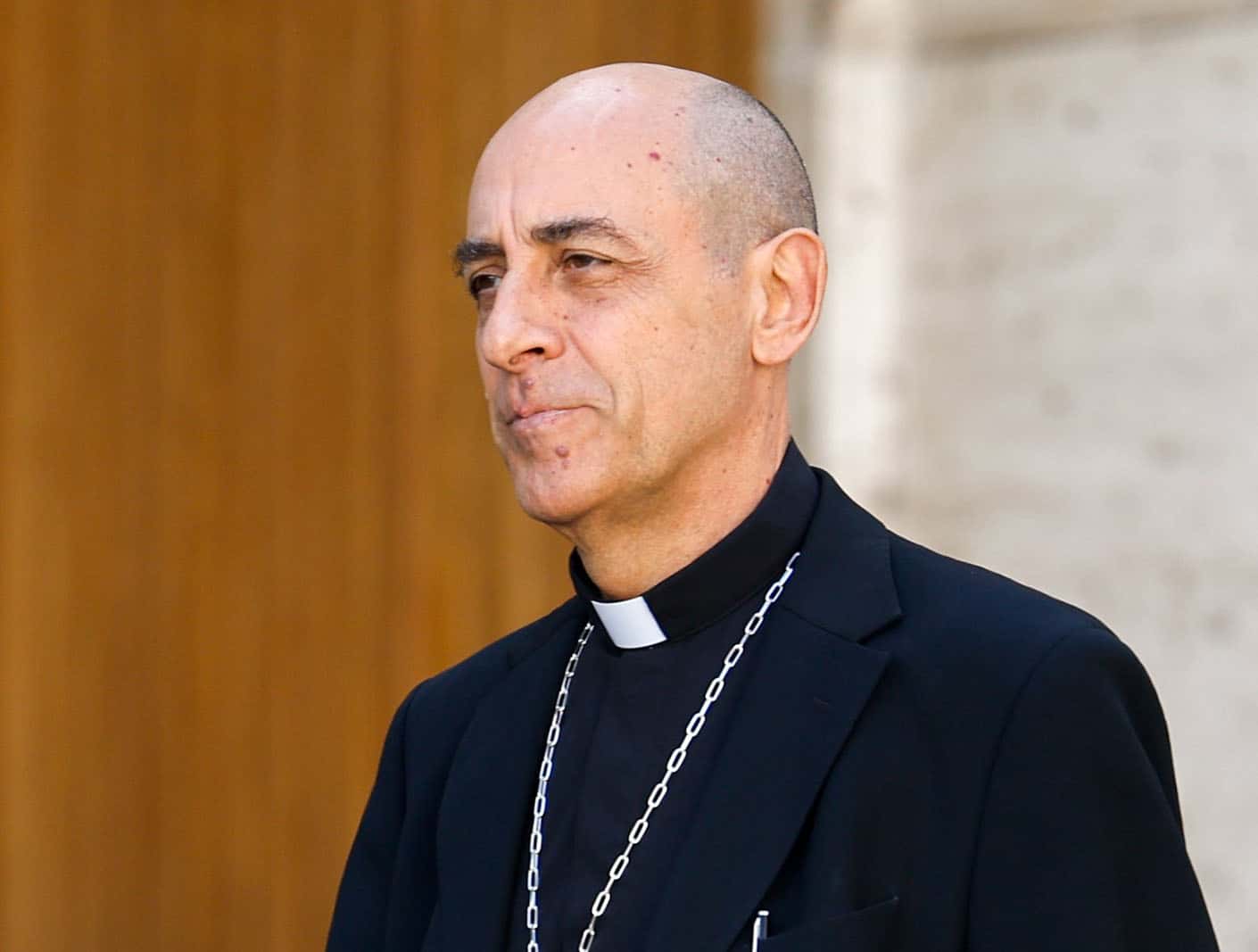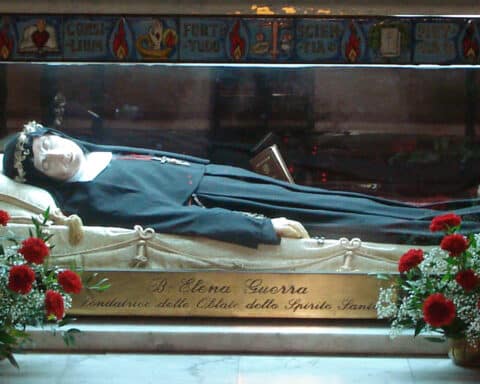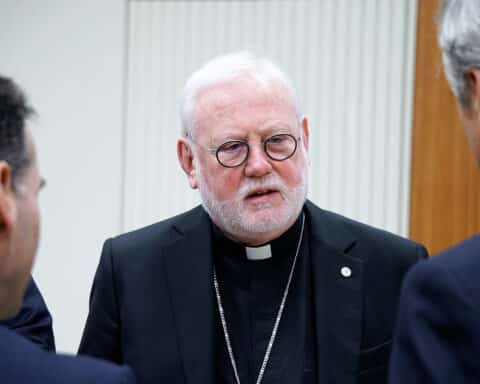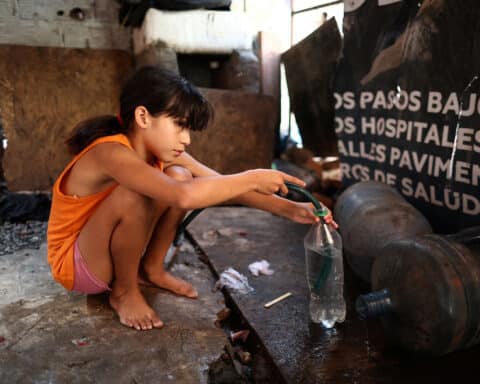VATICAN CITY (CNS) — The Vatican’s affirmation that a priest can give an informal blessing to a gay couple who asks for one is not a first step toward the Catholic Church recognizing same-sex marriages, said Cardinal Víctor Manuel Fernández, prefect of the Dicastery for the Doctrine of the Faith.
“Those who say so either have not read the text or have ‘bad blood,’ if you will pardon the expression. The statement clearly and ad nauseam states that these blessings are non-ritualized so that they are not interpreted as a marriage,” the cardinal told the Spanish newspaper ABC in an interview published Dec. 25.
The doctrinal dicastery’s document, “Fiducia Supplicans” (“Supplicating Trust”), which was approved by Pope Francis, said that while the church “remains firm” in teaching that marriage is only a life-long union between a man and a woman, in certain circumstances priests can give non-sacramental, non-liturgical blessings to “couples in irregular situations and same-sex couples without officially validating their status or changing in any way the Church’s perennial teaching on marriage.”
Strong reactions from African bishops
Several bishops’ conferences in Africa and elsewhere reacted strongly against the document, which was published Dec. 18, and issued statements forbidding their priests from offering such blessings.
While Cardinal Fernández insisted the document “upholds with great clarity and simplicity the Catholic teaching on marriage and sexuality,” he said bishops have a right and duty to advise their priests on the possible use of such blessings.
“What they (African bishops) raise is the inappropriateness of performing blessings that could easily be confused with a legitimization of an irregular union in their regional contexts,” he said.
In addition, he said, several African nations have laws that “penalize with imprisonment the mere fact of declaring oneself gay,” so it would be difficult to imagine a priest in those countries giving a gay couple a blessing.
“In reality,” the cardinal said, “it is up to each local bishop to make this discernment in his diocese or in any case to give further guidance.”
A gesture of pastoral closeness
In other situations, Cardinal Fernández said, people reacting negatively to the document simply did not read it.
“The central theme of the document is the value of ‘non-liturgical,’ ‘non-ritualized’ blessings, which are not a marriage, they are not an ‘approval’ or a ratification of anything,” he said. “They are simply the response of a pastor to two people who ask for God’s help. And, in this case, the pastor does not set any conditions.”
Blessing two people who ask for God’s help is not accepting their relationship as a marriage, “nor is it a ratification of the life they lead, nor is it an absolution,” the cardinal said. “It is a simple gesture of pastoral closeness that does not have the same demands that a sacrament has.”
“If a priest gives this kind of simple blessing, he is not a heretic, he is not ratifying anything, nor is he denying the Catholic doctrine on marriage,” Cardinal Fernández said.





